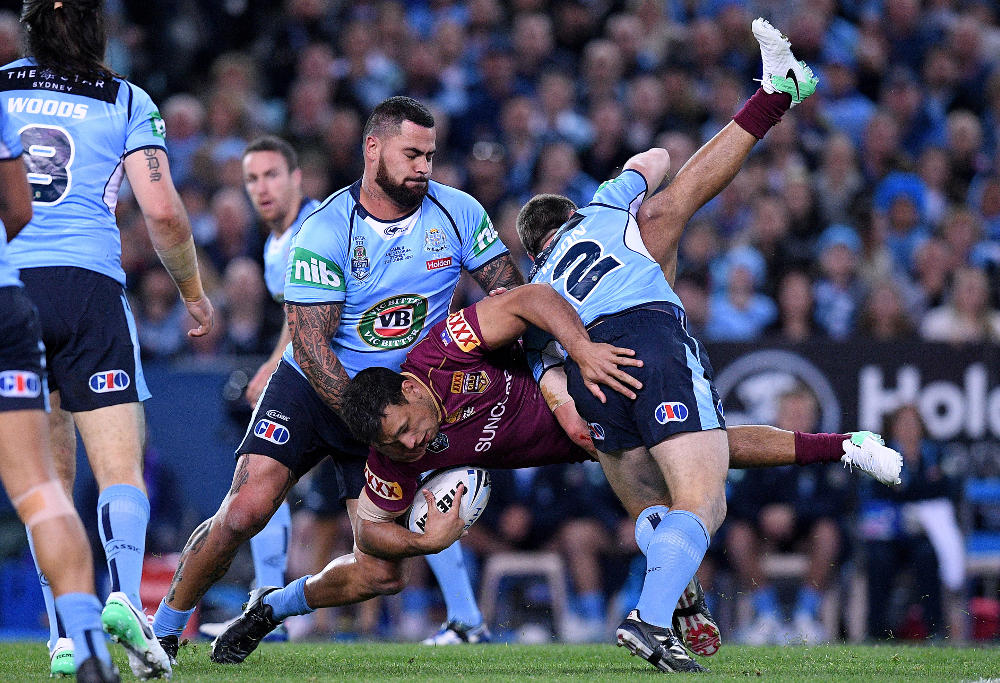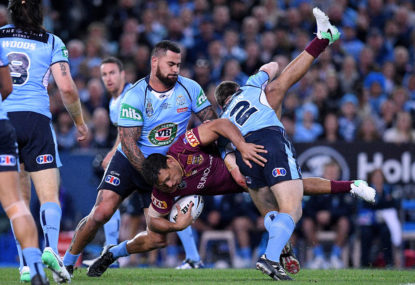As a society we’ve become dangerously accustomed to receiving our news from people with a stake in what they are reporting on.
One suspects the outrage that accompanied the ‘cash for comment’ scandal at the turn of the century – where 2UE callers John Laws and Alan Jones received kickbacks in exchange for favourable comment on a range of businesses – would receive a mere shrug of the shoulders in today’s climate.
Our current affairs shows have become insipid, mind-numbing advertorials that insult our intelligence. Such a thing as centrist political reporting is incredibly hard to find. And you simply expect your talking heads on telly to be beholden to multiple sponsors, allies and associates.
There is no money and no future in being an impartial, moralistic correspondent in the crumbling chaos that is the digital media age.
Such is evolution, we’ve bred an apathetic, cynical populous that needs to be just that in order to survive the amount of absolute tosh served up before their eyes and ears.
Sport has become one of the last preserves where we feel close affinity with certain journalists because they tell it like it is, let their emotions hang out, live and breathe what they talk about.
After all, it’s happening before our eyes in three-dimensional, numerically scored and graded outcomes, so we can’t be misled, can we?
But tell me, then, what happens when sports commentators report and call games they have a financial investment in?
I’m not talking about Eddie McGuire or Phil Gould commentating games that impact the bottom line of those mini-empires they oversee, nor am I talking about Harry the Hack, your weathered newspaper scribe, placing a fiver – nay, even a hungee – on his favourite player or club to come up trumps.
No, I’m talking more so about appointed experts presenting sporting contests where they have stashes of personal moolah resting on the outcome.
I’m talking life-changing amounts of money that could see them enter another stratum of rare company – or could possibly send them to the wall, ruin their marriage and friendships, and possibly call their personal security into question.
Say for example, what happens when the man with his nose close to the source manages to convince a bunch of tight associates to stump up a mouth-dropping amount on a ‘sure thing’ that never eventuates?
We watch on unbeknownst while the commentator tries to steady their concentration, calm their heartbeat and make sense of a world imploding around them, all the while relaying the action to you and the rest of the nation.
If you can find a journalist who can stay icy calm and objective in that environment, let me know. I want them by my side in case I’m ever kidnapped, although admittedly the market for balding, pasty, ginger men is not what it used to be.

(Image: AAP Image/Dan Himbrechts)
Okay, yes, this is another article about betting. And yep, I am one of those stick-in-the-mud types who has always thought that sport being sponsored by betting agents is akin to trying to descend a long, greasy pole in a dignified manner.
But until this week the ethics of live reporters losing or winning a motza on the punt was not something I had ever given a great deal of thought towards.
How could you trust that their commentary would be balanced? How could you trust they wouldn’t be unfairly, maybe even bizarrely, vindictive? Could they frame large percentages of the public consciousness about the attitudes towards certain players, coaches or officials?
One thing we know about rugby league administration is that it’s largely reactionary. Someone the other day described the modus operandi as ‘manage by crisis’.
It is completely feasible that a prominent commentator who has just done his dough on national TV, radio or live blog could influence selectors, referees and coaches at the very minimum by being overtly critical, costing athletes and officials future career opportunities.
I’d like to think actual team coaches wouldn’t be swayed in their opinions by what someone in the media says, but have a look at what Laurie Daley and Kevin Walters do for a crust outside coaching.
I’m not saying that all betting is bad, mmmkay – but we have normalised it, popularised it and entwined our sport with it to such an extent that there are consequences for the game’s integrity that go beyond what we could have envisaged or may even still be alert to.
And as much as this dystopian way of receiving news of the world around us is thoroughly depressing and paranoia-inducing for the majority, let’s not forget that there could be a real person who is suffering or will suffer under immense pressure at the face of it all.
Plenty of conspiracy theorists came out of the woodwork after Wednesday night saying the result had been compromised.
I for one don’t side with them at all, having worked closely with State of Origin teams in the past and having great trust in the personal integrity of the people holding whistles and flags for our big games.
However, I see the accusations as the product of a marketplace the sport has created for itself and I do fear powers of subterfuge could be at play in other ways.
At the end of the day it’s the agents of dishonesty we are keeping our eyes and ears open to – rather than closed – that concern me most.






























































































